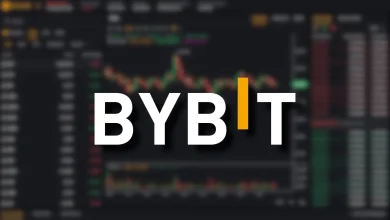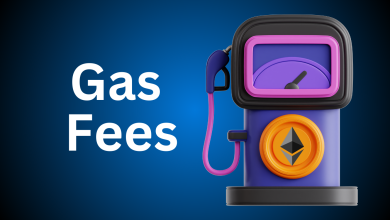The Best Wallets for Freelancers for Receiving Crypto


More businesses and individuals are now accepting cryptocurrencies, such as BTC and USDT, as payment for services or products. Crypto allows quicker international transfers, lower fees, and more flexibility than traditional banking.
Freelancers who accept crypto payments need that make getting paid simple, secure, and flexible. The most suitable wallet depends on whether you want simple mobile pay, instant , simple fiat conversion, or comprehensive long-term security.
This article highlights the best wallet options in 2025, what each does well, and quick tips so you can pick the one that best fits you and begin accepting crypto with confidence.
Key Takeaways
- Gateways handle fiat and invoices (Coinbase Commerce, BitPay, or NOWPayments), hot wallets process day-to-day use (Coinbase Wallet, MetaMask, Exodus, or Trust), and hardware wallets (Ledger or Trezor) secure savings.
- Select wallets based on client needs—multi-coin, BTC-only, or Web3.
- Consolidate wallets for speed, billing, and long-term security.
What to Look for in a Crypto Wallet
Before choosing, freelancers should consider:
- Ease of use: Simple setup, QR codes, or client invoice links.
- Supported currencies: Stablecoins (USDC or USDT) support to minimize volatility.
- Fiat conversion: quick payout to local bank accounts where needed.
- Security: Robust security for short- and long-term balances.
- Record-keeping: Support to export transaction history for tax and bookkeeping.
Top Wallet Options for Freelancers
Coinbase Commerce
For basic invoice links, card/crypto payments, and simple fiat conversion, Coinbase Commerce is a great option. It generates payment buttons and invoices that your client can pay in many currencies. This makes it particularly ideal when customers are new to cryptocurrency or you need an instant fiat off-ramp.
Coinbase Wallet
Coinbase Wallet is a convenient mobile and desktop wallet that is directly integrated with Coinbase’s platform. It gives freelancers instant access to funds, simple transfers, and the option to cash out to fiat as needed. It’s a trustworthy day-to-day wallet for freelancers who require simplicity with a excellent brand name backing it.
BitPay Wallet
BitPay Wallet offers freelancers a consumer wallet that has business capabilities integrated. You can create invoices, accept several tokens, and make direct payments to fiat bank accounts or debit cards. It is also WalletConnect and compatible, which makes it an orderly answer to have more client invoice control for freelancers.
NOWPayments
NOWPayments is a non-custodial gateway for freelancers to create invoices, payment buttons, and API integrations. You can receive dozens of cryptocurrencies and determine whether you’d like to hold payments in crypto or settle into fiat. It is perfect for freelancers requiring flexibility and worldwide accessibility.
OpenNode
OpenNode is a provider of BTC payments and processes both on-chain and Lightning Network payments. It enables freelancers to receive BTC directly and even settle in fiat when desired. This is best suited for freelancers who love BTC only and need cheap and quick transactions.
CoinGate
CoinGate provides payment buttons, invoices, and plugins for online stores and marketplaces such as Shopify and WooCommerce. Freelancers can accept payments in multiple cryptocurrencies and choose crypto or fiat settlement. It is a excellent option for freelancers who need integration with online marketplaces or online stores.
MetaMask
MetaMask is a popular non-custodial ETH and other EVM-compatible blockchain wallets. Freelancers who have clients who work in Web3 or receive ERC-20 tokens will use it the most. While it does not have in-app invoicing, it supports most dApps and can be integrated with a payment gateway.
Exodus
Exodus is a minimalist design, desktop and mobile wallet with large token support. It features built-in swaps and portfolio monitoring, which is simple enough for newbies. Freelancers who want a straightforward, non-custodial wallet to receive and hold multiple coins will find it adequate.
Trust Wallet
Trust Wallet is a wallet that supports thousands of tokens and cryptocurrencies, and it comes with staking, swapping, and NFT support, so it is handy for remote working freelancers. It’s best for those who appreciate mobile accessibility and wide asset coverage.
Ledger
Ledger is a designed to keep your crypto funds offline and secure. Freelancers can receive payments into a hot wallet for daily use and then transfer larger amounts into Ledger for secure, long-term storage. It’s ideal for anyone handling larger freelance payments.
Trezor
Trezor is another leading hardware wallet that provides offline storage and secure protection from hacks or malware. Like Ledger, it’s best for freelancers who require secureguarding of savings once they’ve received payments in hot wallets.
| Wallet / Setup | Best For | Key Features | Downsides |
| Coinbase Commerce | Simple invoicing & fiat conversion | Payment buttons, invoices, multiple coins, fiat off-ramp | Custodial service; not available in all regions |
| Coinbase Wallet | Everyday payments with platform access | User-friendly app, integrates with the Coinbase platform | Custodial risk if linked; not as flexible outside the Coinbase ecosystem |
| BitPay Wallet | Professional invoicing & payouts | Create invoices, accept tokens, fiat settlement, debit card | Requires account verification; limited crypto list |
| NOWPayments | Flexible non-custodial payments | Invoices, API, non-custodial, crypto/fiat settlement | Fees vary; setup may need some technical know-how |
| OpenNode | BTC-specific freelancers | On-chain & Lightning BTC, fiat settlement | BTC-only; no multi-token support |
| CoinGate | Multi-currency payment integration | Payment buttons, plugins, and multi-crypto acceptance | Higher fees; custodial model for fiat settlement |
| MetaMask | Web3 & ERC-20 payments | Non-custodial, dApp integrations, EVM chain support | No invoices; clients must know how to send tokens |
| Exodus | Desktop-friendly beginners | Clean interface, multi-asset, built-in swaps | Not fully open-source; no fiat withdrawals |
| Trust Wallet | Mobile-first freelancers | Wide token support, staking, NFTs, and mobile-focused | No direct fiat off-ramp |
| Ledger (Hardware) | Long-term secure storage | Cold storage, strong hack protection, Ledger Live support | Paid device; less convenient for daily use |
| Trezor (Hardware) | Maximum freelancer security | Open-source hardware, offline storage, simple interface | Extra cost; sluggisher access to funds |
Practical tips for freelancers
- Ask clients for the network before they send (BTC vs ERC-20 vs Solana) to avoid lost funds.
- Prefer stablecoins (USDC/USDT) if you want to avoid short-term price swings.
- Share a QR code or payment link instead of long addresses—it reduces copy/paste errors.
- Keep a bookkeeping trail through CSV export or use gateway receipts to track income and taxes.
- Use hardware wallets for savings and enable device passcodes/biometrics on mobile wallets.
Bottom line
Depending on the requirement for crypto payments, most freelancers often combine wallets to receive their income. For convenience, use a simple hot wallet (Coinbase Wallet, MetaMask, or Exodus) for all your day-to-day payments and a payment gateway (Coinbase Commerce, BitPay, or NOWPayments) when you need invoices or fiat settlements. Move largeger balances to a hardware wallet for securety. This allows you to receive payments promptly and guard against losing your earnings.







